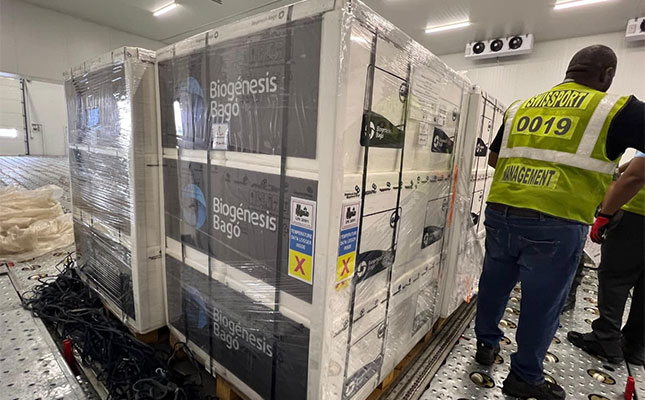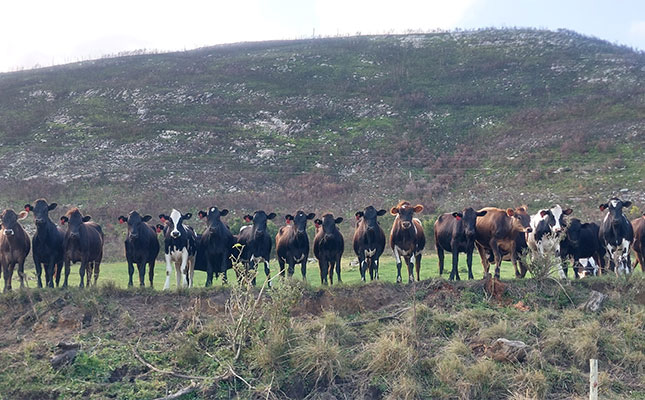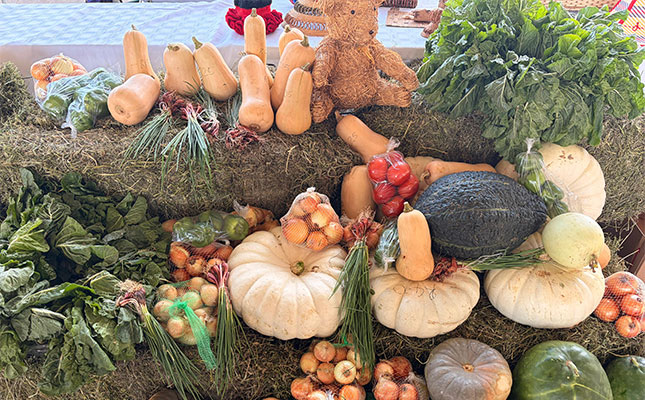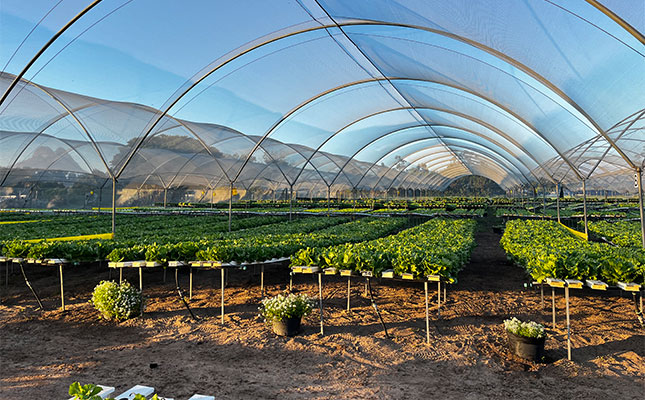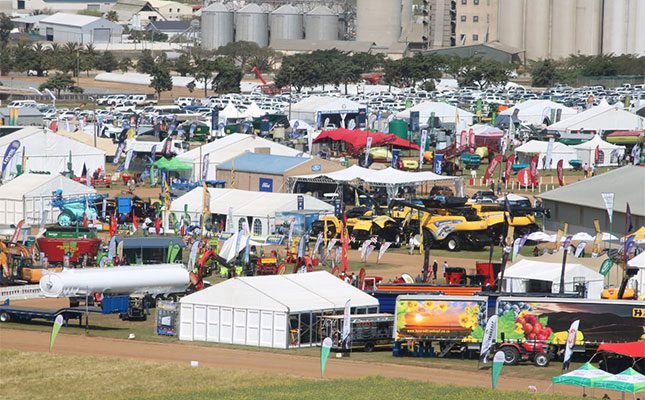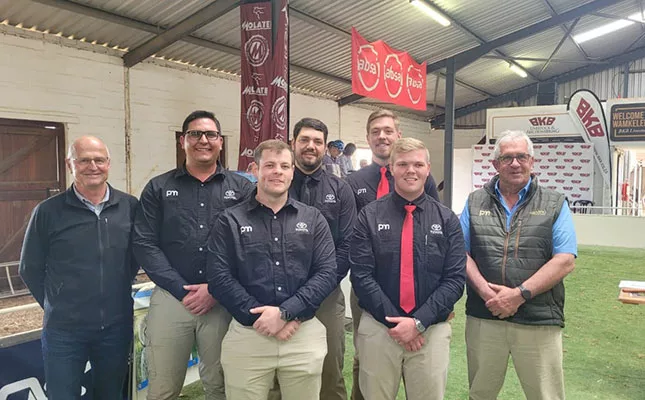
“Today, we are living in the future that we anticipated five years ago.” This was the opening statement from Johann Kotzé, CEO of Agri SA, during the Nation in Conversation panel discussion at Nampo 2025, ‘Preparing for the future: what’s next for commercial agriculture?’
The discussion centred on emerging trends that will play a role in shaping the agriculture sector in the future, and explored how farmers can adapt to changing conditions and leverage new opportunities in a rapidly transforming landscape.
The panel was facilitated by Anlie Hattingh, and included Prof Danie Brink, dean of the Department of AgriSciences at Stellenbosch University; Dr Tobias Doyer, CEO of Grain SA; Johann Kotzé, CEO of Agri SA; and Prof Ferdi Meyer, director at the Bureau for Food and Agricultural Policy.
With regard to technology in the agriculture sector, Doyer said South African’s commercial grain farmers had adopted the relevant technology and prevision agriculture faster and better than other farmers across the globe.
Watch the whole session here:
He added that the future held enormous possibilities.
“If we look at genetics, gene editing and the future of chemistry, there is an explosion coming with regard to new innovative products,” he said.
Affordability affects access to technology
Brink, however, pointed out that it needed to be understood that there were still some challenges, despite the current generation of farmers that were early adopters of technology.
“Affordability affects access to technology, and we must remember that we continuously need to retool and reschool our farmers and people in the supporting services to remain early adopters,” he said.
READ Future-proofing the agriculture sector
Brink said that he had underestimated the pace and impact that technology would have on the sector, and warned others not to do the same.
“The use of technology accelerated management systems and all other services. [Looking into the future], the opportunities created by technology will even be more. The digital phase opens up new horizons to older technology and will help farmers to stay abreast of challenges.”
Farmers use technology to remain resilient
Kotzé added that one should never underestimate the power of disruption as market and industry disruptions creates opportunities.
“Disruption ignites creativity and that excites me when looking to the future. As farmers, we always adapt to challenges. We do not know the concept of giving up. We use technology and create opportunities and remain resilient.”
Meyer pointed out that with artificial intelligence (AI), much of the timing, cost and complexity of hindsight and insight work could be eliminated.
“AI can provide the opportunity to spend more time to focus on the more complex part of understanding what is ahead of the sector in the future.”
In terms of trade, Kotzé said that trade agreements had played a significant role in South Africa’s ability to compete on the global stage, and that they would continue to do so in the future.
“Ensuring continued access to international markets is essential for sustaining this momentum,” he said.
Looking at future trends that could have an impact on the sector, the panel identified the following:
- Market diversity: trade issues will have a big impact, and the sector has to reset its thinking with regard to market access;
- Climate change with consequent risk trends;
- Consumers’ demands and behaviour, as well as their understanding of climate change;
- Funding (the way in which agriculture will be funded will change); and
- Financing.
Referring to future growth in the sector, Doyer pointed out that agriculture has the strategic ability to act as a growth creator. This can be achieved by focusing on the following:
- A substantial investment in infrastructure.
- Access to new technologies.
- Government needs to change from being a regulator to being an enabler.
Kotzé concluded by saying that the biggest intervention for agriculture and farmers was not the political noise or trade issues, but climatic conditions.
“I do not believe that political uncertainty is the main driver of behaviour amongst farmers. The main driver for farmers is natural interventions. Our ability to overcome the political noise is amazing. Do you know how we retaliate against uncertainty? We farm better!”
Get trusted farming news from Farmers Weekly in Google Top Stories.
➕ Add Farmers Weekly to Google ✔ Takes 10 seconds · ✔ Remove anytime

